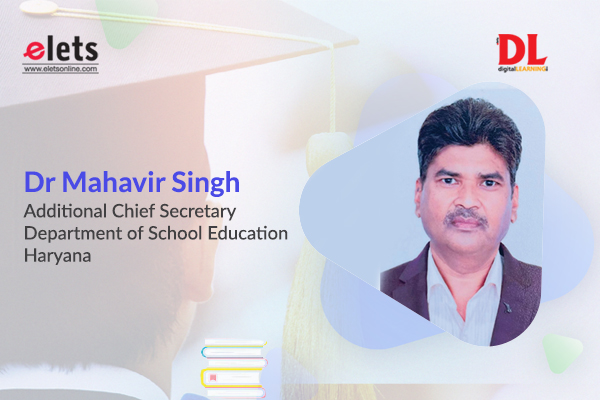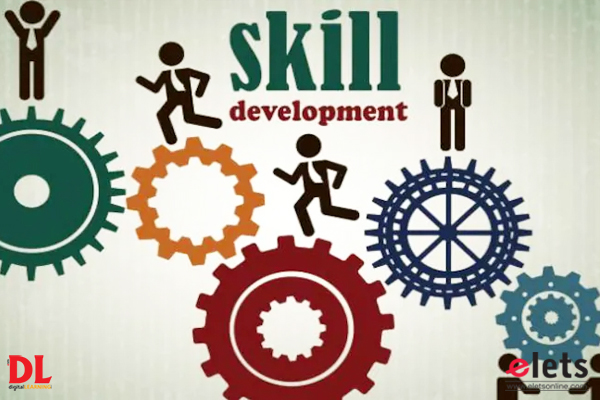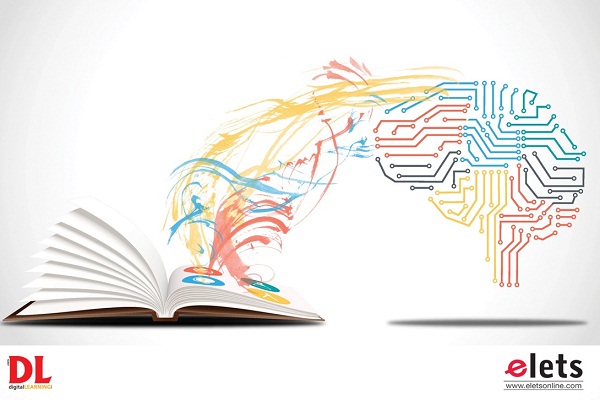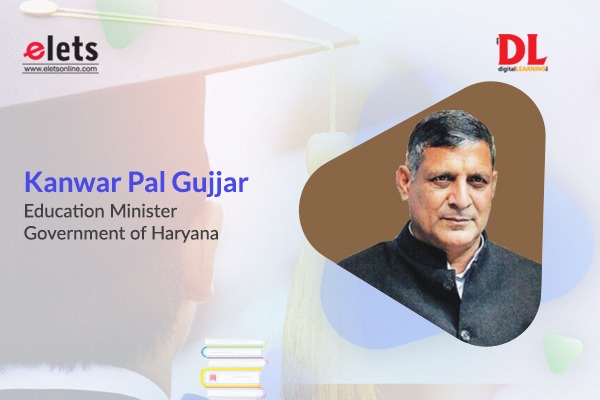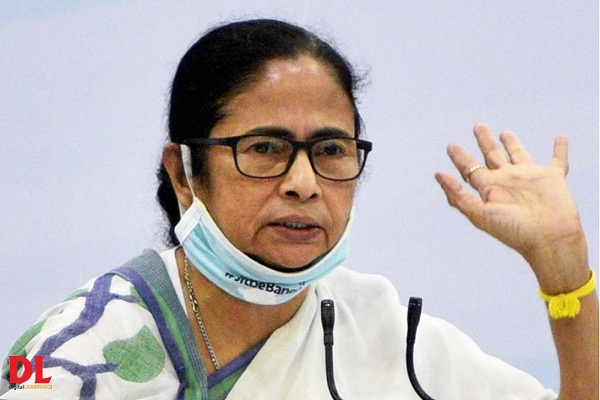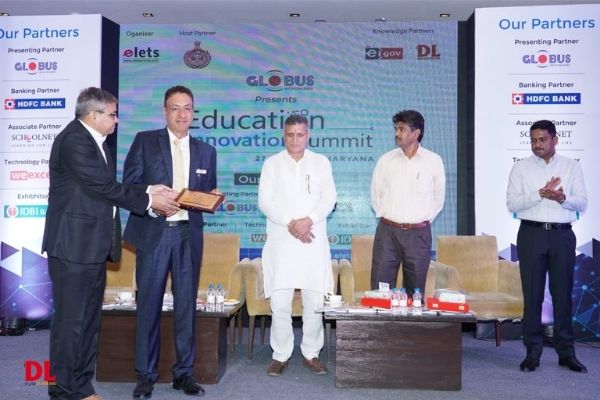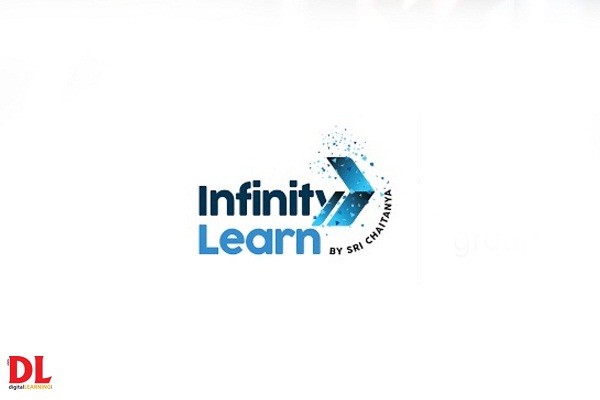School education in Haryana has seen a complete transformation in the past few years with learning leapfrogging from a traditional classroom to virtual and hybrid classrooms. The historical change has come about under the leadership of Dr Mahavir Singh, Additional Chief Secretary, Department of School Education, Haryana, who has pushed ground breaking changes while being at the helm of affairs, writes Priya Yadav, Senior Assistant Editor, Elets News Network (ENN).
Haryana is the only and the first state which has managed to adopt digital learning in the true sense. How did this transformation come about?
During the COVID pandemic, lockdown was imposed across the state and therefore the schools and other educational institutions were shut down. We understood that there were four modes of learning – classroom learning from teachers, from peers, from additional or co-scholastic activities, and self-study. Three of the four modes were adversely impacted by the lockdown as they require in-person interactions. The students were left with the only option of self-study in the initial days of the pandemic. Nearly 75 per cent of the learning process was hampered as the children were confined to homes.
We realised the immense loss of learning that children were going through. Even the academia raised concerns about the loss and started considering the pandemic year as the zero year of learning. Realising the dire need to revive education in the state, we brainstormed ways to tackle the woes. As a solution, it was finally decided to leverage the existing Edusat scheme. However, a major challenge was the delivery as the infrastructure to support the Edusat was locked up in schools. Hence, decisions were made to link the Edusat scheme to televisions and broadcast lectures, educational programmes, and more. With this, Haryana became the first state to leverage TV for delivering education.
We joined hands with the ministry, cable operators and DTH operators and liasioned the Edusat infrastructure with TV. Through this we were able to reach out to almost all the students in the state.
The Government of India appreciated our model to deliver education and later on adopted the same to deliver educational content nation-wide. We were able to shift to digital modes quickly, within a month after the lockdown was announced. Meanwhile, Chief Minister Manohar Lal brought forth the idea of “triple S – Stay at home, School at home and Study at home”.
What were the challenges you faced while implementing digital education across the state? How did you manage to overcome the challenges?
Despite shifting to the digital modes and delivering recorded educational lectures and other content through TV, there were challenges that persisted. One of the challenges was that the teaching was one-way and student-teacher interaction was missing. Therefore, we started takings tests on communication platforms like WhatsApp and online classes were introduced. Also, we started a dedicated YouTube channel to impart learning.
More than 75 per cent of the students attending government schools come from lower strata of the society and faced economic crisis, especially during the pandemic. These students had no access to smartphones or laptops or even internet connection. Therefore, the government decided to provide mobile devices to the children. To overcome this challenge, the CM who is also the Finance Minister of the state rolled out a massive drive to provide tablets to the students of classes 9 to 12. Initially, the idea was to provide smartphones. But considering the small screen size that could strain students’ eyes, the government decided to distribute tablets. Further, we were asked to make a presentation before the Committee of Welfare of SC/BC ofVidhan Sabha. Following the presentation, the committee recommended that to all the students of these three classes from SC/BC should be given tablets.
We came out with tender for providing tablets to about 5 lakh students of classes 10 to 12 in the first phase. Whereas, about 3 lakh students of class 9 will be provided the tablets in the next phase.
However, that is not all, we were still wanting improvisation to put sim cards in the tablet. Also, we have started developing on the software part – Personalized Adaptive Learning software is exclusively meant to keep real time monitoring of students learning statistics. This will also help in fetching feedback from the students on learning outcomes. Moreover, teachers have been asked to share teaching plans beforehand. In doing so we can monitor and identify the problem areas and areas where teachers need to emphasise. Besides, reaching out every student through teachers will aid in monitoring and improving learning outcomes of children. Therefore, to enable effective implementation of digital learning and better pedagogical methos, the government has decided to provide nearly 33,000 tablets to PGT teachers.
How has the digital learning methods and virtual classrooms transformed the student-teacher connect and the overall education scenario in the state?
During the pandemic, we had developed the Avsar app – to get all the assessments done online. More than 97 per cent of the teachers and about 90 per cent of the students were onboard. The positive response posed a motivation for us to take up the digital route. Besides, time was no longer a constraint as virtually, it was 24×7 connection between the teacher and the student. Students could pose any query or suggestion to the teacher who would get back to them with suggestions and inputs on the same. Also, the students could interact amongst themselves and with the teachers and vice versa. Therefore, the platform worked as a virtual classroom for the students.
Another interesting feature is that the learning outcomes of students are regularly monitored and we have developed some analytics on the response from the teachers. The data from the same is being leveraged to upskill te teachers in case needed. Moreover, the daily diary of the teachers was being uploaded online.
Overall, the devices distributed to the students hold preloaded content, hardware, and a monitoring software. Further, these would be centrally monitored by the government that allows us to control what content is fed to the students. Also, students will not be able to venture out to any other platform on the device except for the academic sessions.
After the pandemic effect wanes and the children get back to their classes, how will these tablets help them in learning?
Technology is going to stay; the pandemic was a blessing in disguise because we captured this opportunity to go digital. Providing assistance to students who are loving the idea is that instead of carrying the burden of bags they will have to just bring a tablet.
Kids are very handy with learning new technology and so they will adapt to it easily. When we have technology available, the hybrid model will continue alongside physical classes and online learning. All their homework and classwork will be done on the tablet.







